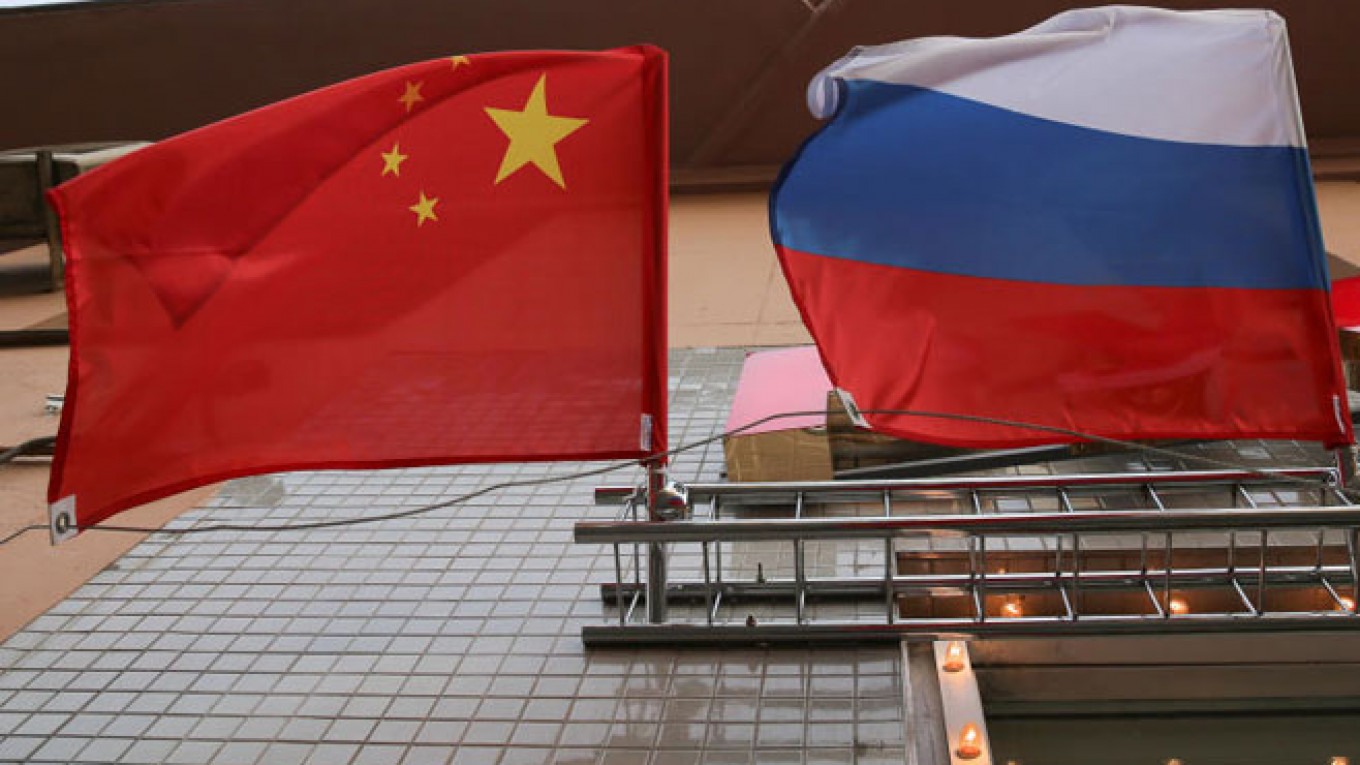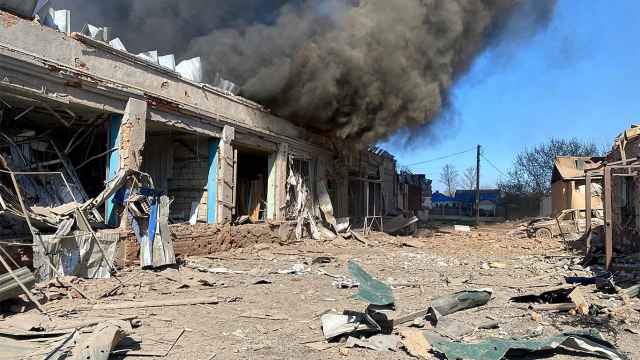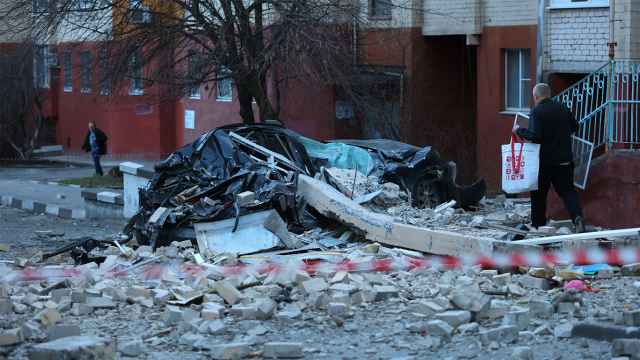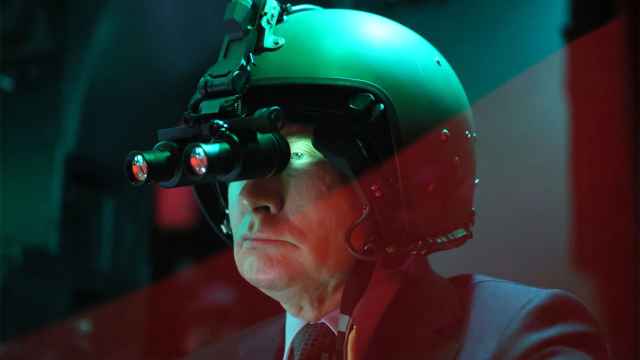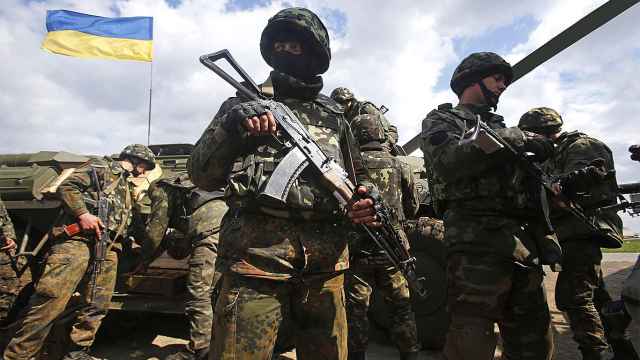As Moscow's relationship with the West continues to deteriorate, Russia has engaged in a concerted and very public "pivot to Asia," the focus of which has been to deepen its relationship with China. Beyond the rhetoric, however, is there a sufficient overlap of interests between Moscow and Beijing for the two sides to actually implement a formal alliance?
Russia and China do share a number of key interests, starting with energy. After nearly a decade of negotiations, during a visit to Beijing in May, President Vladimir Putin signed a 30-year, $400 billion deal for Russia to supply China with 38 billion cubic meters of gas per year to be transported from remote fields in eastern Siberia via a planned 4,000-kilometer pipeline.
In addition to this "eastern route" project, Putin recently asserted that negotiations are ongoing for a second, "western route" pipeline project that would carry gas from Altai to northwestern China.
Military cooperation is another rapidly developing pole of the Russia-China relationship. Earlier this year, Russia and China conducted a joint naval drill in the East China Sea, and according to Russia's TASS news agency, the two sides will hold two more joint-naval drills next year, one in the Pacific and one in the Mediterranean.
Russia has long sold much of its most advanced weaponry to China. During the 1990s and early 2000s, China became a key Russian arms customer, one keeping the Russian military-industrial complex on its feet after domestic orders dried up following the fall of the former Soviet Union.
Now, after a hiatus of several years, Russia and China are in discussions for new arms sales, this time for Russia's most advanced fighter jets and anti-aircraft missile, the Su-35 and the S-400, respectively.
Finally, Russia and China share broadly similar perspectives on most global issues. Ideologically, China and Russia hew to a philosophy that states should not interfere in each other's internal affairs, and both have long bridled at the Americans' focus on promoting democracy and human rights.
The two Eurasian powers also share the geopolitical objective of a multipolar world as opposed to one dominated by the United States. Viewed from Moscow, NATO expansion and Western meddling in Ukraine represent an American strategy to surround and contain Russia. Likewise, U.S. President Barack Obama's much vaunted "pivot to Asia" is simply an excuse to prevent China from resuming its role as the leading power in Asia.
Observing the deepening Moscow-Beijing entente, some American analysts have gone as far as to speculate that Russia and China could potentially form the equivalent of a "Eurasian NATO" that would dominate the Eurasian landmass at the expense of the United States. A closer look at the reality, however, suggests that a combination of differing regional interests and mutual suspicion — primarily unspoken Russian fears regarding China's rise — make a formal alliance between Moscow and Beijing highly improbable
A key issue inhibiting a true Russian-Chinese alliance is the power imbalance between the two. While the economies of the two nations were about the same at the time the Soviet Union broke up, today the Chinese economy is five times Russia's and growing rapidly. Unlike in the 1950s, when China initially allied itself with the former Soviet Union and allowed Moscow primacy, today it is clear that Russia would be the far junior partner in any alliance.
"Every alliance has a horse and a rider. Russia is the horse," said Stephen Blank, a senior fellow for Russia at the American Foreign Policy Council.
An example of the power disparity between Russia and China can be observed in the $400 billion gas contract Putin signed with China in May. While the Russians have interpreted a $25 billion Chinese advance in the contract as a prepayment for the gas to be delivered, the Chinese now say that this advance is actually just a loan with interest, meaning that the deal is far from complete.
The "western pipeline" meanwhile is purely smoke and mirrors at this point, simply discussed in a "working group" between Gazprom and Chinese state gas company CNPC.
"Despite the hype regarding a strategic economic partnership, the money's not coming from China at this point. The Chinese are extremely tough negotiators, and they will take advantage of any Russian weakness they can," noted Blank.
Furthermore, many Russians worry that China actually sees Russia as nothing more than a supplier of raw materials, much as Beijing views Africa. Moscow sees a resource-poor China with 1.3 billion people abutting an increasingly depopulated Siberia and worries that even without any military action by China the Russian Far East could come under Beijing's sway economically and ultimately politically.
China's military capabilities are not overlooked either. As Carnegie Moscow analyst Dmitry Trenin has observed, the Russian security establishment believes that China military is currently focused eastward and southward on Japan and the South China Sea. By the same token, given the economic and demographic disparities between the two countries, Russia understands that China's ambitions could easily turn northward someday.
Indeed, Russia's largest military exercises to date — involving 160,000 troops, 5,000 tanks and a number of ships and aircraft — were held in the Russian Far East near the Chinese border. It is widely understood in Moscow that the land-based aspect of the drill — by far the exercise's largest component — was meant to deter China.
Moscow's longtime interest in ending or modifying the 1987 Intermediate Nuclear Forces Treaty between the U.S. and Russia is also partially motivated by the Kremlin's desire to maintain a strong deterrent on its exposed far-eastern flank.
Although Moscow has gone out of its way not to explicitly antagonize China, the Kremlin has gone about hedging its bets by cultivating relationships with other Asian powers — many of whom have their own differences with Beijing.
For example on his recent trip to India — a country with which China has an increasingly open strategic rivalry — Putin and Indian Prime Minister Narendra Modi reaffirmed the two countries' longtime alliance, with Modi describing Russia as a "pillar of strength" for his nation. The two sides signed contracts for weaponry development as well as for Russia to build 10 new nuclear power plants for the Indians.
Russia is also keen to rebuild Cold War ties with Vietnam, a country with whom China fought a bloody border war in 1979, and Putin reaffirmed Russia's longtime commitment to Vietnam on his November visit to Hanoi.
In sum, although Putin welcomes the opportunity to piggyback on China's growing power to challenge the U.S., a latent fear of China — "a threat that dare not be spoken in Moscow," according to Blank — as well as the Kremlin's unwillingness to accept a relationship where China would be the far dominant power make a true alliance between the two great Eurasian powers extremely unlikely.
Josh Cohen is a former USAID project officer involved in managing economic reform projects in the former Soviet Union. He contributes to a number of foreign policy-focused media outlets and tweets at @jkc_in_dc



